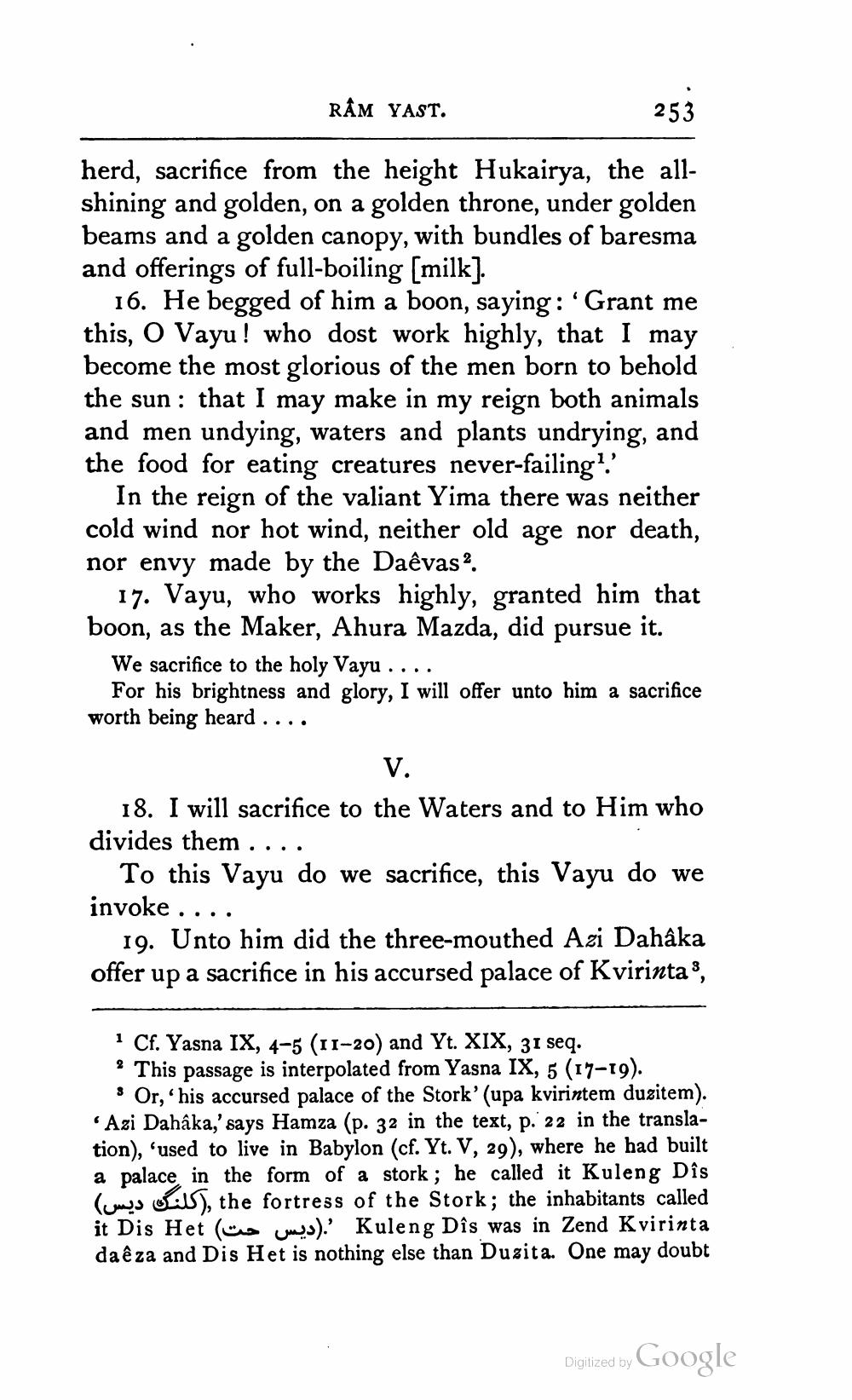________________
RẦM YAST.
253
herd, sacrifice from the height Hukairya, the allshining and golden, on a golden throne, under golden beams and a golden canopy, with bundles of baresma and offerings of full-boiling smilk).
16. He begged of him a boon, saying: 'Grant me this, O Vayu! who dost work highly, that I may become the most glorious of the men born to behold the sun : that I may make in my reign both animals and men undying, waters and plants undrying, and the food for eating creatures never-failing?'
In the reign of the valiant Yima there was neither cold wind nor hot wind, neither old age nor death, nor envy made by the Daêvas?
17. Vayu, who works highly, granted him that boon, as the Maker, Ahura Mazda, did pursue it.
We sacrifice to the holy Vayu ..
For his brightness and glory, I will offer unto him a sacrifice worth being heard ....
V. 18. I will sacrifice to the Waters and to Him who divides them .....
To this Vayu do we sacrifice, this Vayu do we invoke ....
19. Unto him did the three-mouthed Azi Dahâka offer up a sacrifice in his accursed palace of Kvirintas,
1 Cf. Yasna IX, 4-5 (11-20) and Yt. XIX, 31 seq. * This passage is interpolated from Yasna IX, 5 (17-19). * Or, his accursed palace of the Stork' (upa kvirintem duzitem). Azi Dahâka,' says Hamza (p. 32 in the text, p. 22 in the translation), 'used to live in Babylon (cf. Yt. V, 29), where he had built a palace in the form of a stork; he called it Kuleng Dîs Cums O S, the fortress of the Stork; the inhabitants called it Dis Het (ws wuss).' Kuleng Dîs was in Zend Kvirinta daêza and Dis Het is nothing else than Duzita. One may doubt
Digitized by Google




